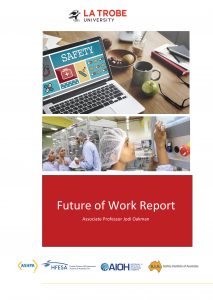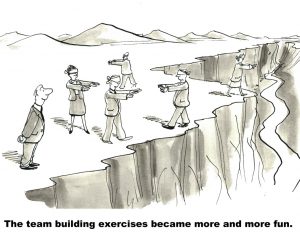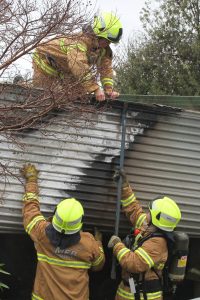 ASHPA, the Australian Safety and Health Professional Associations has been quiet for a while but sponsored La Trobe University to undertake some research into the future of work and its impacts on occupational health and safety (OHS) professionals, hygienists, ergonomists and others. It is an interesting insight into the thoughts and perspectives of safety and health professionals but it also cries out for interpretation and analysis.
ASHPA, the Australian Safety and Health Professional Associations has been quiet for a while but sponsored La Trobe University to undertake some research into the future of work and its impacts on occupational health and safety (OHS) professionals, hygienists, ergonomists and others. It is an interesting insight into the thoughts and perspectives of safety and health professionals but it also cries out for interpretation and analysis.
The report, not yet available online, is based on the responses of 733 safety and health professionals to an online survey. The statistical profile of the profession in Australia is useful and the key findings





